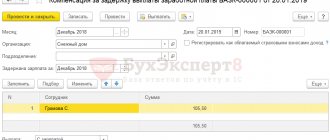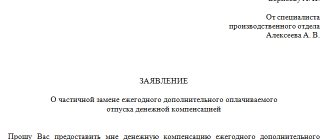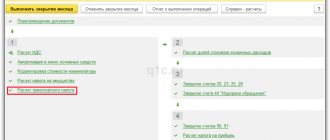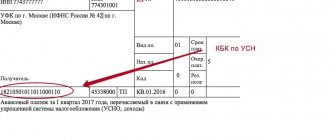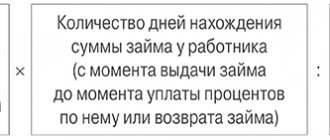When an employee is entitled to compensation for the use of a personal car
The rules for calculating and accruing compensation for the use of a personal car must be documented in the organization. It can be published as a supplement to employment contracts, prescribed in job descriptions, etc.
If an employee's vehicle is used by them to get to work, the costs are not eligible for reimbursement. The exceptions are when, during such trips, the employee delivers goods, works in a taxi company, or drives home employees of the enterprise.
Grounds for payment of compensation
The following documents may be the basis for reimbursement of costs for the use of an employee’s transport for business purposes:
- Annex or additional agreement to the employment contract. In this case, the refund is accrued when the citizen’s work is of a traveling nature. The employee's vehicle is used only by him.
- A car rental agreement, according to which the employee’s personal car is transferred for temporary use to the organization. In this case, the employer becomes responsible for obtaining insurance, carrying out repair and maintenance work, paying transportation costs, etc.
- An agreement on the use of a personal car for business purposes, implying the provision of transport services to the company. Such a document is of a civil law nature; it specifies the timing of the accrual of monetary amounts and the exact amount of compensation.
If there is a document regulating the company’s obligation to reimburse travel expenses to a citizen, funds are accrued on the basis of an order for the payment of compensation issued by the manager.
NTVP "Kedr - Consultant"
LLC "NTVP "Kedr - Consultant" » Services » Consultations of auditors » The amount of compensation paid to an employee for the use of personal transport for business purposes is not subject to personal income tax and insurance contributions
Question: 1. In connection with the introduction of an electronic fare payment system in public transport, what documents can be used to confirm, for profit tax purposes, the costs of paying for the purchase by employees of single electronic tickets, issued in the form of a plastic card, valid for three years.
Can there be a document confirming the expenses incurred, a route sheet for business trips, with the approved amount of expenses without attaching tickets?
2. Is the amount of compensation for the use of personal vehicles for business purposes, paid in excess of the norm, subject to personal income tax and insurance contributions, if, under the terms of the contract, this compensation is paid in the presence of supporting documents (waybills and receipts for fuel and lubricants and sales receipts confirming the repair of the vehicle. ).
Audit specialists answer: I. When calculating income tax, it is necessary to take into account the provisions of Art. 252 of the Tax Code of the Russian Federation, which requires documentary evidence and economic justification of the expenses incurred.
Documented expenses mean expenses confirmed by documents drawn up in accordance with the legislation of the Russian Federation, or documents drawn up in accordance with business customs applied in the foreign state in whose territory the corresponding expenses were incurred, and (or) documents indirectly confirming the expenses incurred. expenses (including customs declaration, business trip order, travel documents, report on work performed in accordance with the contract). Any expenses are recognized as expenses, provided that they are incurred to carry out activities aimed at generating income.
In accordance with clause 1 of Article 786 of the Civil Code of the Russian Federation, under a contract for the carriage of a passenger, the carrier undertakes to transport the passenger to the destination, and if the passenger checks in luggage, also deliver the luggage to the destination and hand it over to the person authorized to receive the luggage; the passenger undertakes to pay the established fare, and when checking in baggage, also for the carriage of baggage.
The conclusion of a contract for the carriage of a passenger is certified by a ticket, and the handing over of luggage by a passenger is certified by a baggage receipt.
The forms of the ticket and baggage receipt are established in the manner prescribed by transport charters and codes.
In accordance with Article 20 of the Federal Law “Charter of Motor Transport and Urban Ground Electric Transport” dated November 8, 2007 N 259-FZ, the mandatory details of a ticket, baggage receipt, receipt for hand luggage are established by the rules for the carriage of passengers.
A cash receipt with the details of a ticket, baggage receipt, or hand luggage receipt indicated on it is equivalent to a ticket, baggage receipt, or hand luggage receipt, respectively.
It is allowed to use tickets indicating part or all of the details in electronic form, unless otherwise provided by the legislation of the Russian Federation.
Thus, based on the type of electronic ticket, the following conclusions can be drawn:
- if an electronic ticket, valid for three years, replaces a travel ticket, the fare payment for which is made at a time at the beginning of the month and the travel amount is written off at the end of the month, regardless of the number of trips, then the document confirming the expenses incurred will be a receipt for payment on an electronic ticket for monthly travel, with a route sheet for business trips attached;
- if an electronic ticket, valid for three years, replaces an electronic card, payment for which is made for each trip with the issuance of a ticket and payment is made on the card as necessary, then the documents confirming the expenses incurred will be the tickets issued during the trip, with application of the itinerary sheet for business trips.
II. The Labor Code of the Russian Federation imposes the obligation on the employer to compensate the employee for expenses associated with the use of his property. Thus, according to Article 188 of the Labor Code of the Russian Federation, when an employee uses personal property with the consent or knowledge of the employer and in his interests, the employee is paid compensation for the use, wear and tear (depreciation), in particular, of personal transport, and also reimbursed for expenses associated with their use . The amount of reimbursement of expenses is determined by agreement of the parties to the employment contract, expressed in writing.
However, when paying compensation for the use of personal cars for business purposes, these compensations are normalized when calculating corporate income tax.
Subclause 11, clause 1, art. 264 of the Tax Code of the Russian Federation determines that the costs of paying compensation for the use of personal cars for business trips are taken into account in other costs associated with production and sales, only within the limits established by the Government of the Russian Federation (Resolution of the Government of the Russian Federation “On establishing standards for expenses of organizations for the payment of compensation for the use of personal cars and motorcycles for business trips, within which, when determining the tax base for corporate income tax, such expenses are included in other expenses associated with production and sales” dated 02/08/2002 N 92).
In accordance with this Resolution, the following expense standards are established:
— passenger cars with engine capacity up to 2,000.00 cc. inclusive - 1,200.00 rubles per month;
— passenger cars with an engine capacity over 2,000.00 cc. inclusive - 1,500.00 rubles per month.
The amount of excess compensation over the legally established norm in expenses is not taken into account when calculating income tax. This is stated in paragraph 38 of Art. 270 Tax Code of the Russian Federation.
When establishing the amount of compensation, according to the tax authorities, the standards established by Resolution No. 92 already take into account all the costs of operating a personal passenger car: this includes the amount of wear and tear, the costs of fuels and lubricants, maintenance, and routine repairs.
Therefore, the payment of some additional compensation (for example, to reimburse the cost of fuel and lubricants) is, for tax purposes, an excess payment that does not reduce the tax base for income tax (letter of the Ministry of Finance of Russia dated May 16, 2005 N 03-03-01-02/140 ). At the same time, the legitimacy of the tax authorities’ approach is confirmed by arbitration courts.
For example, the Federal Antimonopoly Service of the Ural District considered a situation where an organization paid employees using personal cars for business purposes compensation in the amount established by Resolution? 92, and also paid additionally for the cost of fuel and lubricants. The court qualified payment for fuel and lubricants as excess compensation, which cannot be taken into account in expenses for profit tax purposes (Resolution of the Federal Antimonopoly Service of the Ural District dated December 8, 2008 N F09-9153/08-S3, the legality of which was confirmed by the Determination of the Supreme Arbitration Court of the Russian Federation dated January 29, 2009 N VAS-495/09).
Since these compensation payments are payments in favor of an individual, the question arises about the calculation and payment of personal income tax, as well as insurance contributions to extra-budgetary funds:
- in accordance with clause 3 of Art. 217 of the Tax Code of the Russian Federation are not subject to personal income tax on all types of compensation payments established by the current legislation of the Russian Federation, legislative acts of the constituent entities of the Russian Federation, decisions of representative bodies of local self-government (within the limits established in accordance with the legislation of the Russian Federation), related, among other things, to the execution by the taxpayer ( employee) job duties.
- in accordance with the traffic regulations. “and” clause 2 of Art. 9 of the Federal Law “On insurance contributions to the Pension Fund of the Russian Federation, the Social Insurance Fund of the Russian Federation, the Federal Compulsory Medical Insurance Fund and territorial compulsory medical insurance funds” dated July 24, 2009 N 212-FZ, all types of insurance contributions established by law are not subject to taxation of the Russian Federation, legislative acts of constituent entities of the Russian Federation, decisions of representative bodies of local self-government of compensation payments (within the limits established in accordance with the legislation of the Russian Federation) related to the performance of labor duties by an individual.
These provisions also include compensation for the use of a personal car for business purposes.
Based on the interpretation of the norms of the Federal Law “On Insurance Contributions to the Pension Fund of the Russian Federation, the Social Insurance Fund of the Russian Federation, the Federal Compulsory Medical Insurance Fund and Territorial Compulsory Medical Insurance Funds” dated July 24, 2009 N 212-FZ and the Tax Code of the Russian Federation, compensation payments for the use of a personal vehicle for business purposes, personal income tax and insurance premiums are not assessed in full (Letters of the Ministry of Finance of Russia dated May 20, 2010 N 03-04-06/6-98 and dated December 23, 2009 N 03-04-07 -01/387; Letter of the Ministry of Health and Social Development of Russia dated March 12, 2010 N 550-19).
Thus, the amount of compensation paid to an employee for the use of personal transport for business purposes is not subject to personal income tax and insurance contributions within the limits of the amounts determined by the agreement between the organization and its employee in accordance with Article 188 of the Labor Code of the Russian Federation.
Rules for processing compensation
Monetary compensation for expenses incurred by the owner of the vehicle during its operation for business purposes requires documentation:
- An agreement that specifies the specifics of the future use of the machine. A detailed description of the vehicle is provided: make and model, state registration number, type, year of production. The contract also stipulates the amount of compensation or the algorithm for calculating it, and the payment procedure.
- Personal documents confirming ownership of the vehicle: a copy of the registration certificate and the MTPL insurance contract.
The amount of compensation is determined based on the costs indicated in the waybills. They are accompanied by documents confirming the expenditure of the citizen’s personal funds on servicing the car during working hours.
Reimbursement of expenses for personal transport and insurance premiums
Note!
The Presidium of the Supreme Court of the Russian Federation, in paragraph 3 of the Review dated October 21, 2015, summarized the judicial practice and came to a very important general conclusion.
The receipt by an individual of benefits in the form of goods (work, services) and property rights paid for him is not subject to personal income tax, if the provision of such benefits is determined, first of all, by the interests of the person transferring (paying for) them, and not by the purpose of primarily satisfying the personal needs of the citizen. The mere fact that as a result of providing a citizen with the benefits paid for him, the personal needs of the individual are satisfied to a certain extent, is not sufficient to conclude that taxable income in kind has arisen. 217 Tax Code of the Russian Federation. Provisions expressly providing for the exemption from taxation of amounts of compensation by the employer in accordance with its
What expenses are eligible for reimbursement?
Mandatory payment is subject to:
- current repairs of the vehicle (only procedures that were required during the use of the vehicle by the organization are paid for);
- scheduled and unscheduled maintenance;
- vehicle depreciation;
- cost of parking spaces;
- purchase of fuel, lubricant, antifreeze liquid and other consumables (fuel and lubricants).
If the vehicle is rented by an organization, then additionally paid:
- cost of the MTPL insurance policy;
- car maintenance expenses;
- payment for damage caused to third parties, for example, in case of road accidents.
IMPORTANT! If the employee does not provide checks or receipts from the gas station, then fuel and lubricants are written off when using a personal car for business purposes without reimbursement of their cost.
These expenses are mandatory for payment. The list can be supplemented by relevant clauses of the contract drawn up between the car owner and the company by mutual agreement.
Reflection in 6 personal income tax compensation for car parking
The following entry about income tax in 6-NDFL when renting from individuals.
persons - deduction to the treasury. Important The law says that the transfer in this case must occur no later than the working day following the date of payment.
This date is reflected in form 6-NDFL on line 120. EXAMPLE An individual received funds for rent from the company on October 14, 2021. The same date must be indicated in line 100 of the completed form 6-NDFL. Procedure for filling out 6-NDFL): - line 010 “Tax rate”; - line 020 “Amount of accrued income” - this line will include the total amount of rental payments paid to the taxpayer as of the reporting date from the beginning of the tax period; — line 040 “Amount of calculated tax” — on this line it is necessary to reflect the amount of personal income tax calculated from these payments on an accrual basis from the beginning of the tax period; — line 070 “Amount of tax withheld” — this line will include the total amount of tax withheld on an accrual basis from the beginning of the tax period.
Calculation procedure and payment amount
The legislation does not limit employers in determining the maximum amount of return for the use of employees’ personal cars for work needs. The minimum values are:
- passenger vehicles with engine capacity up to 2000 cc. cm – 1.2 thousand rubles;
- Passenger vehicles with engine capacity over 2000 cc. cm – 1.5 thousand rubles;
- motorcycle transport – 0.6 thousand rubles.
All costs for machine maintenance, repairs, technical inspection, etc. are paid in full.
Calculation example
Only days actually worked by the employee are subject to payment. Accordingly, the period of his absence is excluded. The amount is calculated according to the following conditions:
- The amount of accrual established by the contract is 6 thousand rubles. monthly;
- months for which payments are calculated – April and May;
- During the paid period, the employee took out sick leave - 16 days of temporary disability.
We recommend reading : Procedure for reimbursing employee expenses for mobile communications
Thus, the amount of assistance for two months will be:
- Number of working days in the period: 21 + 20 = 41 days.
- Amount per day: 6,000 * 2 (for two months) / 41 = 292 rubles. 68 kopecks
- Actual days worked: 41 - 16 = 25 days.
- Total amount of compensation: 25 * 292.68 = 7 thousand 317 rubles.
Thus, the transfer of funds for using your own car for work purposes for days worked will be equal to 7,317 rubles.
Reflection of rent from an individual in form 6-NDFL (nuances)
Also:
- ;
- .
- ;
In accordance with paragraph 3 of Art. 226 of the Tax Code, the tax agent must calculate the amount of personal income tax to be withheld as of the date the individual receives income.
According to paragraph 1 of Art. 223 of the Tax Code of the Russian Federation, the date an individual receives rental income will be the date the tenant pays for services in money or transfers income in another form permitted by law. At the same time, sub. 6 clause 1 art. 208 of the Tax Code of the Russian Federation represents income as remuneration received for work performed or service provided.
A seemingly simple logical chain: the service is provided, payment is made, personal income tax is withheld and paid to the budget - in practice it leads to additional questions. For example:
- Should advances paid to the landlord before completion of services be shown in 6-NDFL for the period or not?
- Services under the lease agreement have been provided, but actual payment has not yet been made - how will this look in 6-NDFL?
